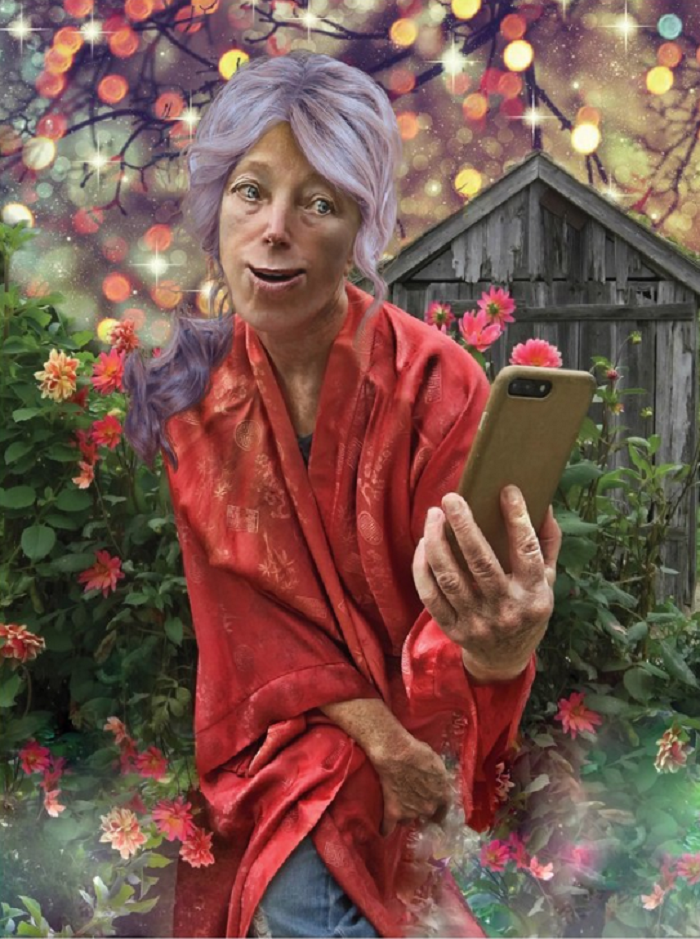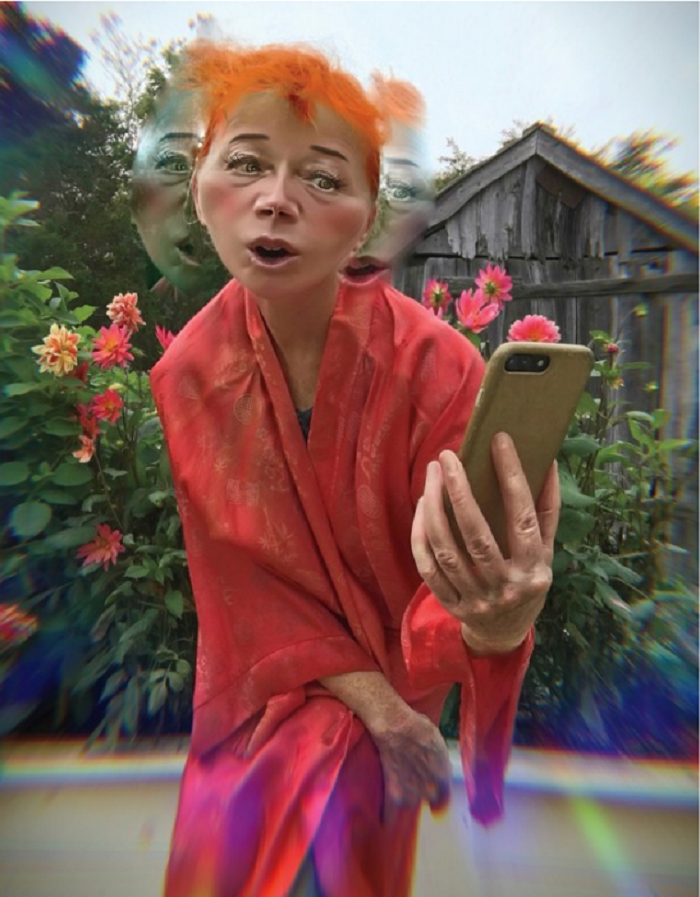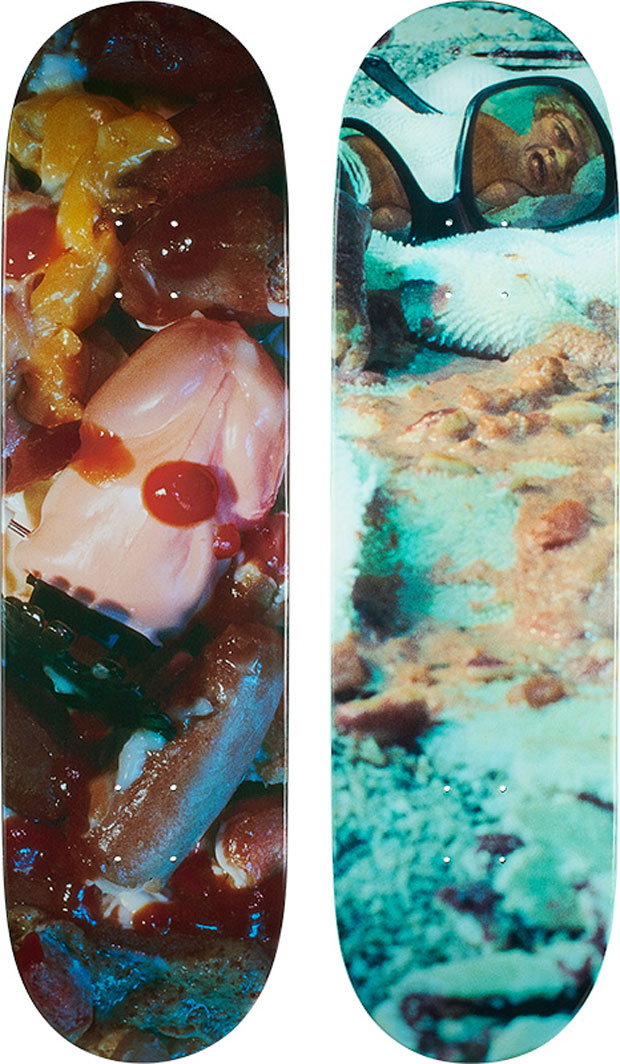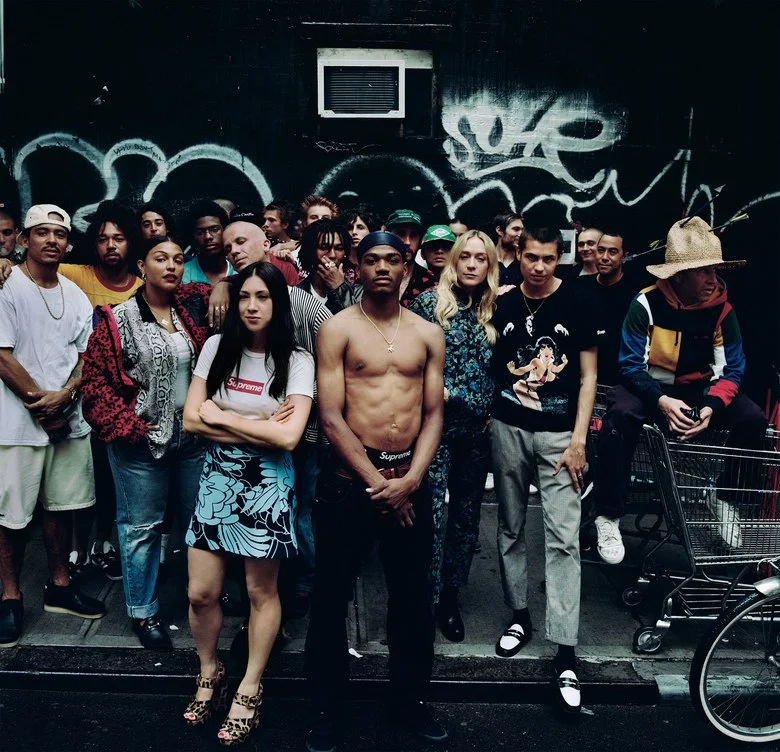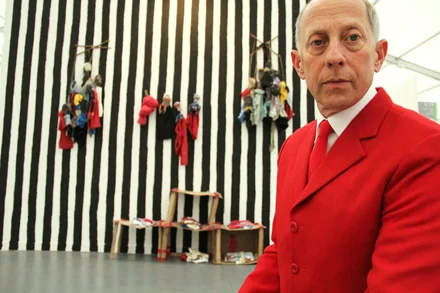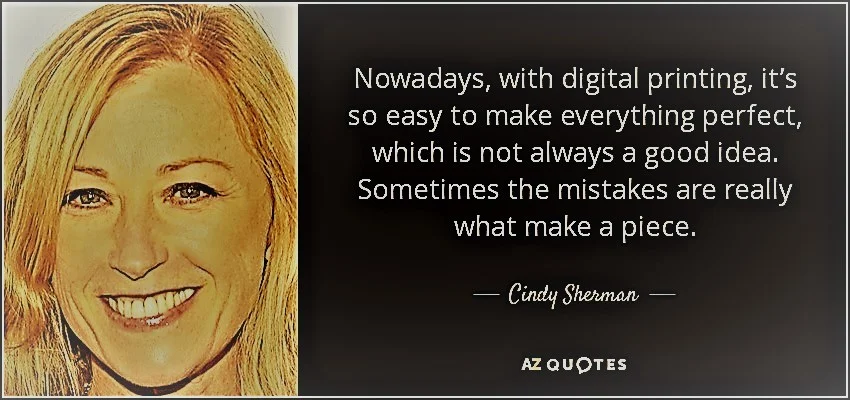Cindy Sherman On Selfies for W, Skateboards for Supreme & Sexual Harassment
/American artist Cindy Sherman insists that she hates the idea of selfies. “People say”—Sherman adopts a naive tone in W Magazine's Artists issue—“ ‘Oh, but you’re, like, the queen of selfies,’ ” and then her voice goes flat. “I really kind of cringe at that thought.”
Unlike the millions of humans populating the planet with incessant sharing of their own self-images, Sherman insists that her images to not depict herself. Rather, her artist's mission has always been to exposes how culture shapes appearances. "Since she has long resisted autobiographical readings of her work, it has been intriguing lately to see her take to, and toy with, Instagram, a platform that thrives on interplay of the personal and the artificial, especially when it comes to self-portraiture," writes Andrew Russeth for W.
Sherman admits to being impressed with images of her taken by a makeup artist. All the lines, bags and small craters associated with her almost 64-year-old face were gone. In short order, a friend showed her an app called Facetune as the source of her new perfect visage. Sherman apped in to Facetune and also added Perfect 365 and YouCam Makeup to tweak her facial features, apply makeup, and add an accessory or two.
Always the rebel, the artist in Sherman quickly turned the apps upside down to "tease highly unorthodox results -- and, often, grotesqueries -- from these tools." Sherman's selfies have inflamed skin, warped noses and piercing gazes. Duplicate apparitions of herself sometimes spring from her head and body as disturbing companions to her already provocative self.
“I was kind of just lying around with nothing to do and playing with my phone,” Sherman told W, adding that since her recovery, she has had less time to devote to the pursuit, and is beginning to find the experience repetitive. “I feel like I’m looking for something else—another place to take it to.”
Sherman’s project for W is plandid style -- the planned candid photograph, which is “like a newer, hotter version of the selfie on Instagram." Designed to appear carefree, they are carefully composed images of disciplined nonchalance. "Presented here (for W) is a mise en abyme of looking: a woman—or should I say women?—posing for herself on her phone as she poses for another photo that she is pretending not to pose for. Perhaps we are seeing the same images that she is viewing on her screen as she tries out different visages on the fly, shuttling through an uncountable number of aesthetic options with taps and glides of her finger. These works have a particular charge at a time when we snap ourselves with the understanding that our image will ricochet onto any number of screens, devices, and platforms. We are all striving to get it right."
Welcome to digital life and a minute-to-minute obsession with me-ness.
“All these Instagram images are, for me, just playing around,” Sherman says. “I don’t think it at all competes with my serious work. They’re just fun, like a little distraction.” Denying that these “silly sketches” have influenced her art directly, Sherman remains intrigued. “I’m not such a perfectionist with using the apps. If you can erase the background and add another background, I don’t really care if the edges are all clean, and if it looks kind of funky, or if things overlap in a not-so-perfect way. It’s kind of freeing me up a little bit and maybe making me more open to experimentation.”
Cindy Sherman Skateboards for Supreme
For Fall 2017, will release a series of two limited edition skateboard decks featuring original artwork by American artist Cindy Sherman from her 'Grotesque Series'.
Cindy Sherman is an American artist born in Glen Ridge, New Jersey in 1954. Known for her cinematically composed self-portraits as invented characters, Sherman’s work explores the stereotypes of female iconography in popular culture and female identity in society. Though her work does not adhere to any particular aesthetic, it is unified in the common theme of the fictionalized portrayals of women through the lenses of mass media. – from Supreme
Available in-store NY, Brooklyn, LA, London, Paris and online November 9th, and in Japan on November 11th. In September 2017, Vogue profiled James Jebbia, the man who founded Supreme in 1994 and continues to run the SoHo-based company that has morphed from a small skateboard shop into a global brand.
Supreme shares a montage of Cindy Sherman's career on YouTube.
Recently the fashion world has been waking up to Supreme. In the past decade, the company has opened stores in Tokyo, London, and Paris, while the passionate devotion of their customers has brought it into the conversation with both teenagers at skateboard parks and the front rows of high fashion—with Paris in particular swooning over Supreme’s collaboration this fall with Louis Vuitton. Jebbia loved working with Kim Jones, Vuitton’s menswear designer, to make skateboard trunks and backpacks, bandannas and gloves, shirts and jackets. The feeling was mutual.
Cindy Sherman on Sexual Harassment
Artforum's Knight Landesman
Cindy Sherman joined other powerful people in the art world -- including 7000 women -- to denounce sexual harassment by people like the late October 2017 resignation of Knight Landesman. Known for his colorful suits, the co-publisher of arts magazine Artforum resigned after a lawsuit was filed by Amanda Schmitt accusing him of sexual harassment against eight other people.
"We are artists, arts administrators, assistants, curators, directors, editors, educators, gallerists, interns, scholars, students, writers and more - workers of the art world - and we have been groped, undermined, harassed, infantilised, scorned, threatened and intimidated by those in positions of power who control access to resources and opportunities," the letter read.
The text was titled "Not Surprised", in reference to a work by prominent artist Jenny Holzer, known for her installations with broad statements.
"Abuse of power comes as no surprise," the letter read.
"The resignation of one publisher from one high-profile magazine does not solve the larger, more insidious problem: An art world that upholds inherited power structures at the cost of ethical behaviour," it continued.
"We have been silenced, ostracised, pathologized, dismissed as 'overreacting' and threatened when we have tried to expose sexually and emotionally abusive behaviour.
"We will be silenced no longer."

